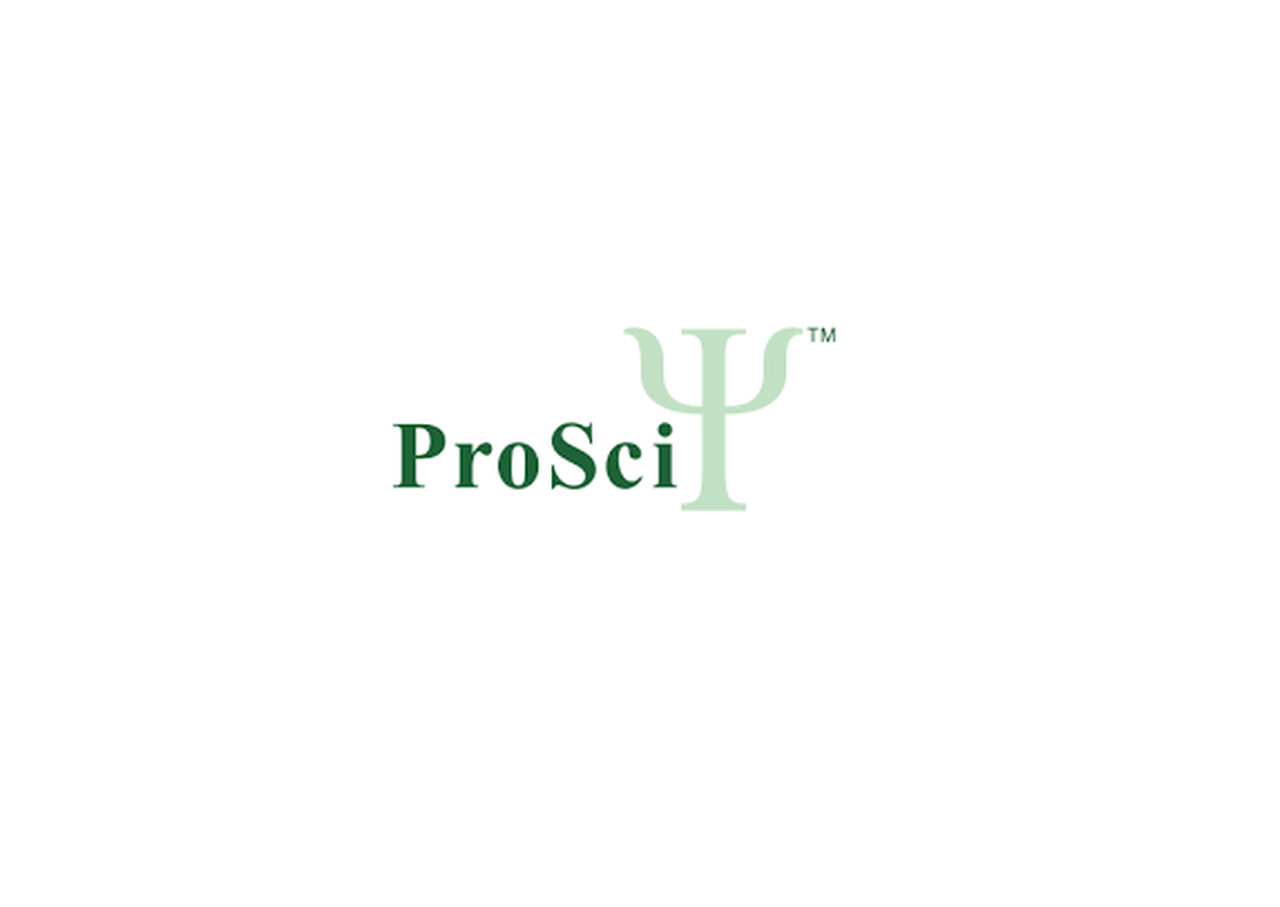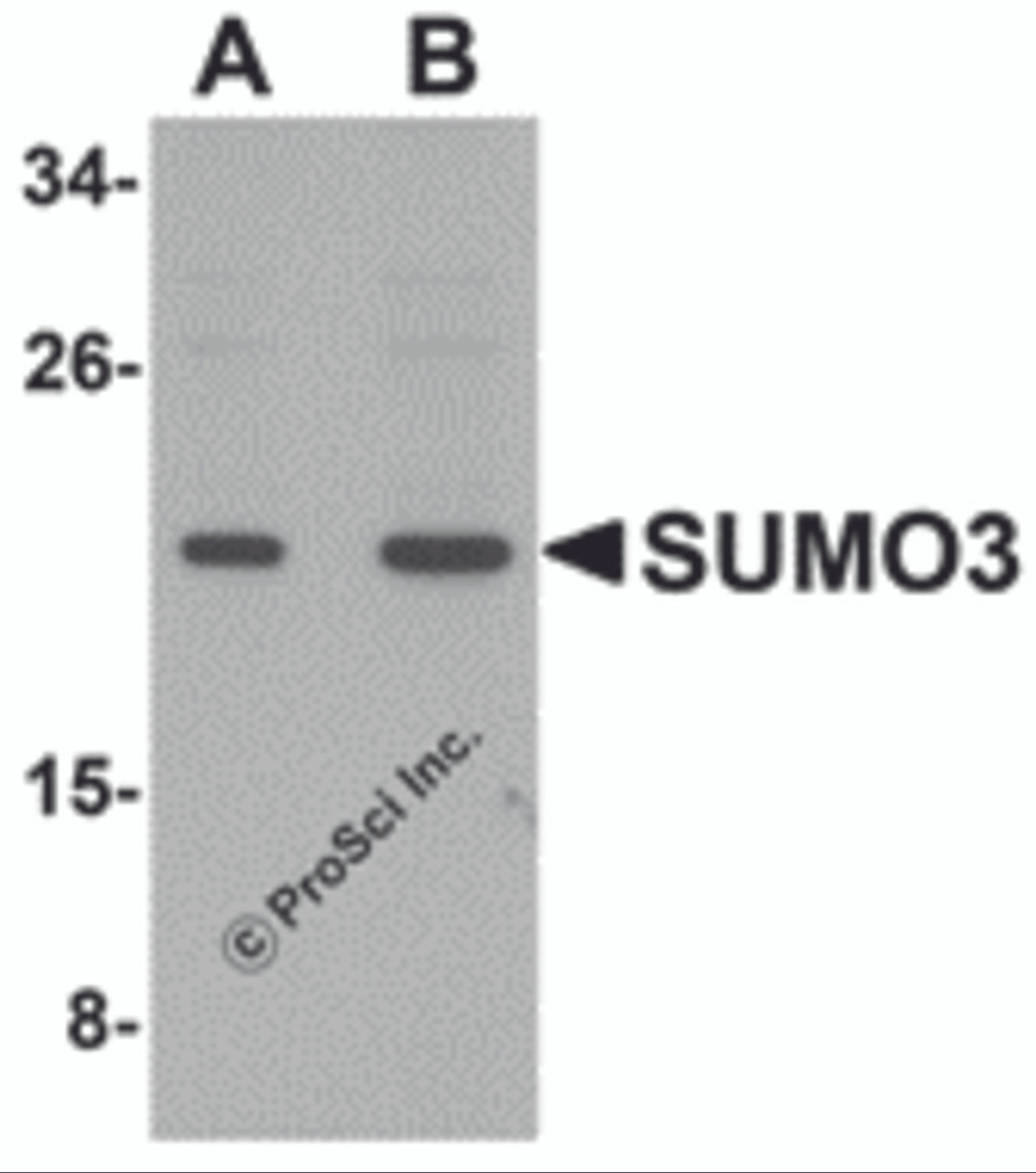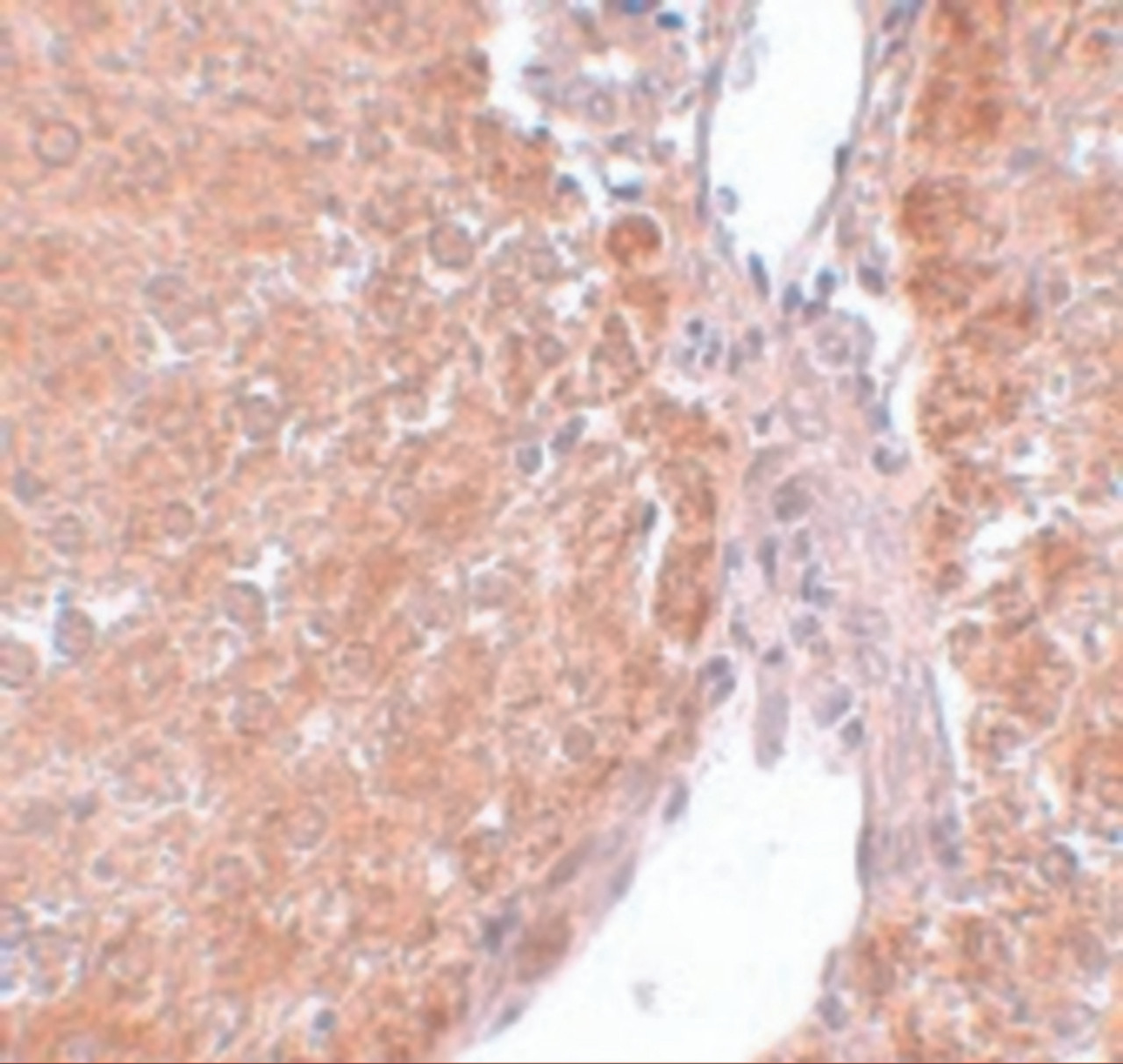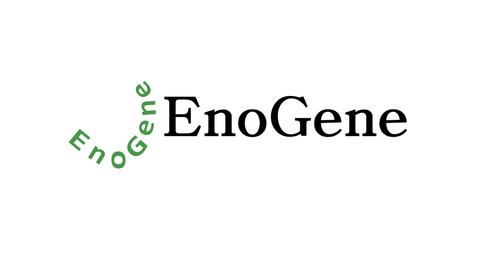Product Description
SUMO3 Antibody | 5757 | ProSci
Host: Rabbit
Reactivity: Human, Mouse, Rat
Homology: N/A
Immunogen: SUMO3 antibody was raised against a 13 amino acid synthetic peptide near the carboxy terminus of human SUMO3.
The immunogen is located within the last 50 amino acids of SUMO3.
Research Area: Homeostasis
Tested Application: E, WB, IHC-P, IF
Application: SUMO3 antibody can be used for detection of SUMO3 by Western blot at 1 - 2 μg/mL. Antibody can also be used for immunohistochemistry starting at 5 μg/mL. For immunofluorescence start at 20 μg/mL.
Antibody validated: Western Blot in mouse samples; Immunohistochemistry in rat samples and Immunofluorescence in mouse samples. All other applications and species not yet tested.
Specificiy: N/A
Positive Control 1: Cat. No. 1404 - Mouse Liver Tissue Lysate
Positive Control 2: N/A
Positive Control 3: N/A
Positive Control 4: N/A
Positive Control 5: N/A
Positive Control 6: N/A
Molecular Weight: N/A
Validation: N/A
Isoform: N/A
Purification: SUMO3 Antibody is affinity chromatography purified via peptide column.
Clonality: Polyclonal
Clone: N/A
Isotype: IgG
Conjugate: Unconjugated
Physical State: Liquid
Buffer: SUMO3 Antibody is supplied in PBS containing 0.02% sodium azide.
Concentration: 1 mg/mL
Storage Condition: SUMO3 antibody can be stored at 4˚C for three months and -20˚C, stable for up to one year. As with all antibodies care should be taken to avoid repeated freeze thaw cycles. Antibodies should not be exposed to prolonged high temperatures.
Alternate Name: SUMO3 Antibody: SMT3A, Smt3B, SMT3H1, SUMO-3, SMT3B, Small ubiquitin-related modifier 3, SMT3 homolog 1
User Note: Optimal dilutions for each application to be determined by the researcher.
BACKGROUND: SUMO3 Antibody: Small ubiquitin-like modifiers (SUMOs) are a family of small, related proteins (Sumo-1/2/3/4) that can be enzymatically attached to a target protein by a post-translational modification process termed sumoylation, which is a major regulator of protein function in cellular processes such as nuclear transport, transcriptional regulation, apoptosis and protein stability. All SUMO proteins localize to the nucleus and are covalently conjugated, affecting protein structure, function and interactions. SUMO2 and 3 are 96% identical and are more mobile within nucleus relative to SUMO1. Specific functional differences between SUMO1 and SUMO2 and 3 remain to be identified.
 Euro
Euro
 USD
USD
 British Pound
British Pound
 NULL
NULL












